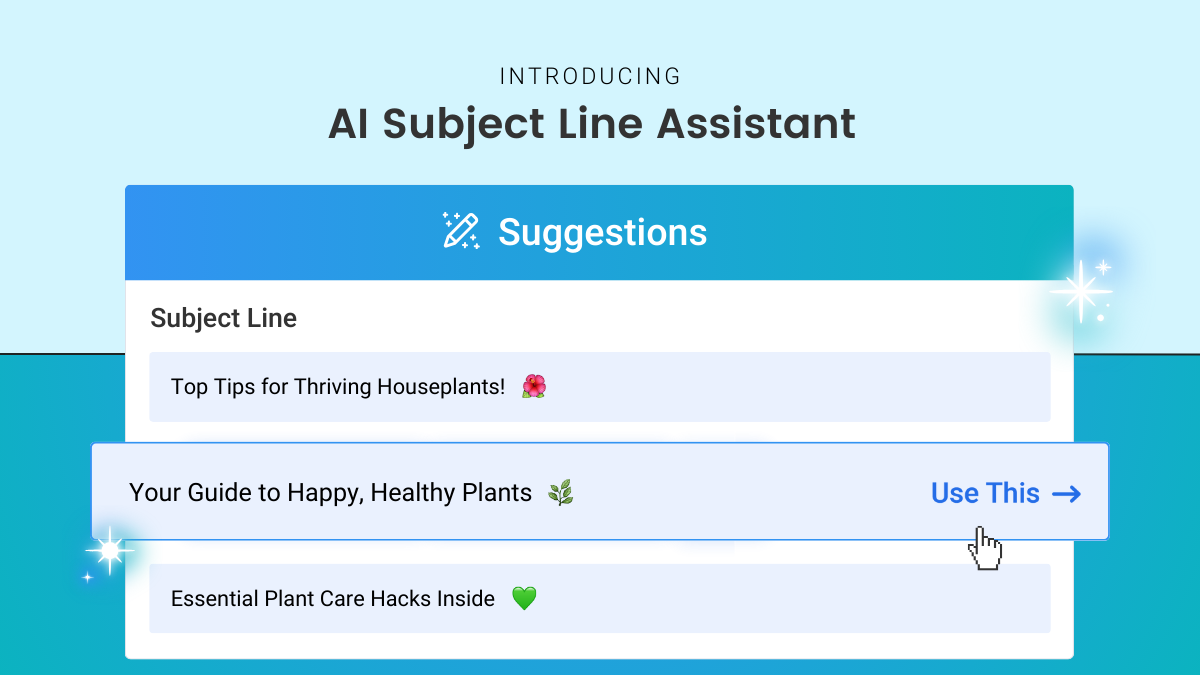SEO can feel like a magic wand in your content strategy. Wave it just right, and your brand’s content can claim a preferred place in the search results.
But mastering SEO isn’t as easy as sprinkling keywords like fairy dust and hoping for the best. It demands strategy, finesse, and oftentimes, the guiding hand of a freelance SEO strategist.
Think of these pros as the Merlin to your King Arthur. An SEO strategist can guide you through the perpetually changing labyrinth of Google’s algorithm. They’ll uncover target keywords that align with your content pillars, audit your existing content to find growth opportunities, implement smart on- and off-page tactics, and develop winning link-building strategies.
Want to summon one of these wizards for your team? Here’s our sage advice on recruiting SEO strategists and harnessing their alchemy for long-term success in search results.
What is an SEO strategist?
An SEO strategist (or search engine optimization strategist) is a digital marketing professional who finds ways to help a brand or website reach more people online. They can plan, implement, and manage the SEO strategy for your content to help it rank higher on search engine results pages (SERPs) and grow your web traffic. Some SEO strategists create plans for you to implement, while others help with execution, as well. An experienced SEO content strategist will be able to help you tailor your SEO plans to meet the needs of your content strategy.
Type of work an SEO strategist can do
SEO strategists can handle a variety of tasks related to growing your organic web traffic and helping your content appear in SERPs. Think of them as a behind-the-scenes expert on improving your brand’s visibility online.
When working with a freelance SEO strategist, you can negotiate on exactly which tasks you want them to help with. Take a look at this freelance SEO strategist job description from Contently for examples of the type of work they can do, including:
Link-building strategies
Website architecture audit
Keyword research
Competitor analysis
HTML optimization
Writing optimized meta descriptions and title tags
Where to find an SEO strategist
SEO strategists work behind the scenes, which can make them a little trickier to find than a freelance writer who has bylines proudly stamped on their polished copy.
You can streamline your search by tapping into Contently. Its marketplace has tens of thousands of SEO strategists and other freelance creatives who can level up your content.
How to vet SEO strategists
Your recruitment efforts should leave you with a list of SEO strategists to consider. But since you can only hire one of them, how do you make sure you pick the perfect match for your team?
Review their work experience
Start by getting a sense of their work and accomplishments. Look at their list of previous clients—if the SEO strategist has worked with other brands in your sector, they can hit the ground running when they start working with you. Testimonials from past clients can give you a closer look at what it’s like to work with them. Likewise, case studies serve as evidence of their results.
Check their credentials
Does the SEO strategist boast any relevant certifications? If so, that’s tangible evidence of their expertise and commitment to mastering their craft. It indicates they’ve undergone formal training and demonstrated proficiency in SEO skills, which could lead to better results for your brand. Keep in mind that SEO best practices change often—the more recent the credential, the more likely it is that the strategist has up-to-date knowledge.
Watch out for red flags
Perhaps the biggest red flag an SEO strategist can wave is a promise for quick results or top rankings. SEO strategists don’t control the search algorithm or which links it shows on SERPs. Beware of any strategist who offers shortcuts or guarantees overnight success.
Ask the right questions
Get to know your SEO strategist better over email or a brief call. This is an opportunity to share more about your work and goals, as well as get a sense of their approach to SEO content strategy.
Hannah Belport, senior operations manager at Contently who vets freelance SEO strategists, likes to ask strategists if they are more on the education/consulting side of things or are experienced with technical, page-level SEO, or both. “Neither is preferred over the other necessarily—both have strengths and their purpose,” she says. But it’s important to know what you’re looking for and whether the candidate’s skills are a fit.
Here are some questions you can ask an SEO strategist to see if they’re right for your business:
What’s your typical SEO process?
What SEO tools do you rely on?
Which metrics do you use to measure success?
How do you keep up with SEO trends and updates?
What’s the biggest SEO challenge brands face today?
How long does it typically take to see results?
Can you provide examples of past SEO projects you’ve worked on and their outcomes?
How do you approach keyword research and selection for a new project?
How do you adapt your SEO strategies to different industries or business goals?
How to onboard an SEO strategist
Having a structured onboarding process for a freelance SEO strategist is like laying down the tracks before the train starts rolling. It ensures you’re both on the same page about the agreement, scope of work, expectations, payment structure, and goals.
Here’s how to onboard an SEO strategist.
1. Ensure you have a contract and scope of work in place. You’ll need a signed contract before you can start working with an SEO strategist (if you’re . Your brand’s legal team may have a freelance contract you can use, or you can look for templates online. At this stage, it’s also a good idea to draft a scope of work. It should include clear deliverables, deadlines, reporting cadence, key performance indicators (KPIs), and goals.
2. Establish a payment method. Freelance SEO strategists depend on on-time payments from their clients. Ask how they’d like to receive payment and share that info along with any pertinent details (like account numbers) with your accounts payable team. Freelancers typically expect to receive payment for projects within 30 days of sending an invoice. If you have an ongoing relationship with an SEO strategist, consider making more frequent payments to encourage them to stick around for the long term.
3. Share your brand materials. Helping an SEO strategist get deeply acquainted with your brand’s identity can help them fine-tune their techniques to reach your target audience. Send them essential materials, like your style guide, branding guidelines, customer personas, and content strategy.
4. Get them plugged into your systems. Granting access to your content management system (CMS) and web traffic analytics dashboard allows the SEO strategist to dive deep into your website’s performance metrics and content architecture. Work with your tech team to get them set up with usernames, passwords, and any other requirements.
Tips for working with an SEO strategist
Having a talented freelance SEO strategist on your team can spell the difference between your content thriving with visibility or fading into digital oblivion. If you find someone who drives results and is a pleasure to work with, you’ll want to build a positive relationship with them so you can collaborate again in the future.
Here are some best practices to keep in mind.
1. Don’t treat a freelancer as a member of your internal team. While they agree to deadlines, they work on their own schedule and can’t always commit to lengthy or impromptu meetings. Don’t assume they’re available for something at the last minute—freelance SEO strategists work with many clients at one time, so they might be busy with another project.
2. Establish a scope of work—and follow it. Freelance SEO strategists stick closely to the tasks outlined in the scope of work they’ve signed. If you want to add to their to-do list, expect to renegotiate the contract, deadlines, and the budget.
3. Pay invoices on time. Making timely payments shows freelancers that you value your relationship and their work. Do your best to get their invoices processed quickly. If there’s a delay in payment, get in touch with them right away and let them know when to expect the money.
4. Provide thorough, thoughtful feedback. Did you find their competitor landscape analysis particularly insightful? Give them a virtual high-five! Are you not into the SEO content ideas they pitched for a specific vertical? Let them know why and offer more clarity on what you’re looking for.
5. Address red flags right away. If you notice any red flags while you’re working with a freelance SEO strategist, don’t ignore them or take on the work yourself. Providing clear, immediate feedback gives them the opportunity to make adjustments and get back on track. Establishing a regular cadence for check-ins can also help you both maintain alignment on your overall SEO strategy.
Finally, try to connect with them on a human level. Working with freelancers over email can feel transactional. Developing a relationship that’s both professional and personal can foster better communication, mutual respect, and a collaborative spirit. Plus, they’ll feel more comfortable bringing their best SEO insights to the table.
Ask the Content Strategist: FAQs about SEO strategy
How long does it take to see results from SEO efforts?
The timeframe to see results from SEO efforts can vary based on several factors, including the competitiveness of your industry, the current state of your website, and the strategies implemented. Generally, you might start to notice some improvements in your search rankings and organic traffic within 3 to 6 months. However, SEO is a long-term investment, and achieving significant results often takes 6 to 12 months or more. Consistent effort and ongoing optimization are key to maintaining and enhancing these results over time.
What are some long-term strategies for maintaining and improving SEO rankings over time?
Maintaining and improving SEO rankings over time requires ongoing efforts, such as regularly updating content, conducting keyword research, and performing technical SEO audits. Building quality backlinks, optimizing user experience, and staying informed about algorithm changes are also crucial. Additionally, monitoring performance metrics and engaging on social media can help sustain and enhance your SEO strategy.
What are backlinks, and how do they impact SEO?
Backlinks are links from other websites that point to your site. They are crucial for SEO because they signal to search engines that your content is valuable and trustworthy. High-quality backlinks from reputable sites can significantly boost your search engine rankings, increase your site’s authority, and drive more organic traffic. Essentially, backlinks act as endorsements from other websites, helping to improve your site’s visibility and credibility in search engine results.
Looking to increase organic traffic to your company website? Work with one of our top-tier SEO strategy experts at Contently.




